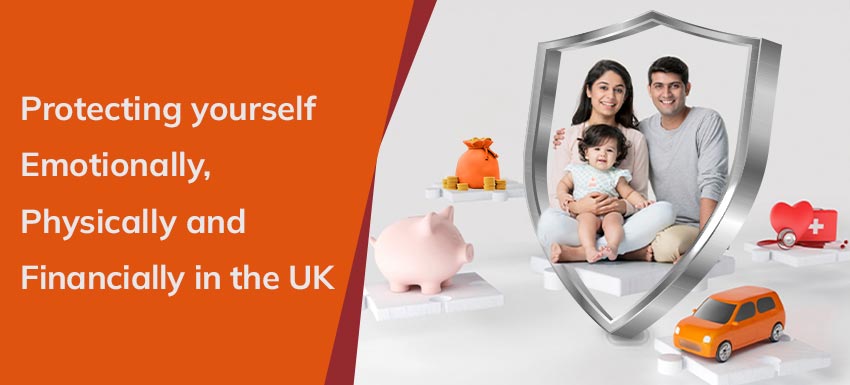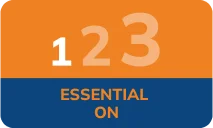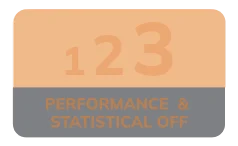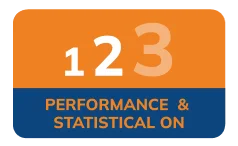A guide for Indian newcomers to the UK: Protecting yourself emotionally, physically and financially

Moving to the UK is an exciting and transformative experience, but it can also bring challenges, especially when you are away from family and friends. Protecting yourself emotionally, physically and financially is crucial for an enjoyable life in the UK.
Here are some tips to protect yourself emotionally, physically and financially:
Emotional protection
1. Stay connected: Regularly communicate with your family and friends through video calls and messaging apps. Familiar voices and faces can provide comfort and can help reduce feelings of isolation.
2. Seek support: If you feel overwhelmed, don’t hesitate to seek professional help. The UK has numerous mental health resources, such as NHS mental health services and university counselling centres. Websites like Mind (www.mind.org.uk) offer valuable information and support.
3. Mindfulness and relaxation: Engage in mindfulness practices such as meditation or yoga to manage stress and anxiety. Apps like Headspace and Calm can be helpful.
4. Join communities: Engage with the local Indian communities and student associations. Joining these groups can provide emotional support and a sense of belonging. Look for community groups on social media platforms like Facebook, Instagram etc.
Physical protection
1. Stay active: Regular exercise is essential for maintaining physical and mental well-being. Join the gym, participate in sports or take regular walks. Universities often have sports facilities and clubs that you can join.
2. Healthy eating: Maintain a balanced diet. Cooking meals at home can be healthier and more cost-effective than eating out. Shop at local markets and Indian grocery stores for familiar ingredients.
3. Healthcare: Register with a local General Practitioner as soon as possible. The NHS (National Health Service) provides comprehensive healthcare services and having a GP ensures that you have access to medical support when needed.
4. Safety awareness: Familiarise yourself with the local areas and the emergency contact numbers. For any immediate assistance, dial 999. The police non-emergency number is 101 and for medical help, you can call on 111.
Financial protection
1. Plan your budget wisely: Create a monthly budget to manage your expenses effectively. Prioritise essentials such as rent, groceries and transportation. Use budgeting apps like Mint or YNAB to track your spends.
2. Part-time work: If your visa allows, consider a part-time job to support your finances. Universities often have job boards and career services to help you find suitable positions. Check out websites like StudentJob (www.studentjob.co.uk) for opportunities.
3. Seek financial advice: Utilise university financial services for advice on managing your money and finding scholarships or grants. Financial advisors can provide guidance on saving and investing wisely.
4. Emergency fund: Set aside an emergency fund to cover unexpected expenses. This can provide a financial safety net and reduce stress during unforeseen circumstances.
5. Avoid debts: Be cautious while using Credit Cards or taking loans, to avoid debts. If you need financial assistance, seek advice from trusted sources rather than resorting to high-interest loans.
By focusing on these aspects, you can protect yourself emotionally, physically and financially, thus ensuring a smoother and more enjoyable life in the UK. Remember, it is okay to seek help as you adjust to the new environment.
Disclaimer
The contents of the articles are meant merely for information purposes only and contains public sector information licensed under the Open Government Licence v3.0. The content is not an offer, invitation or solicitation of any kind to buy or sell anything and is not intended to create any rights or obligations. Nothing on this website is intended to constitute legal, tax, securities or investment advice, or opinion regarding the appropriateness of any investment, or a solicitation for any product or service. References to any third party Brands does not in any manner whatsoever whether direct/indirect constitute any collaboration/co-branding/affiliation with such third parties. ICICI Bank UK plc, affiliates of ICICI Bank their respective officers, directors, personnel, representatives, consultants, nominees, designees do not accept any responsibility for any direct or indirect loss/claim/damage arising out of or in relation to the event or the use of information communicated herein. ICICI Bank UK plc makes no representations or warranties of any kind, express or implied, about the completeness, accuracy, reliability with respect to the content for any purpose. Any reliance placed on such information is therefore strictly at one’s own risk.
Scroll to top






